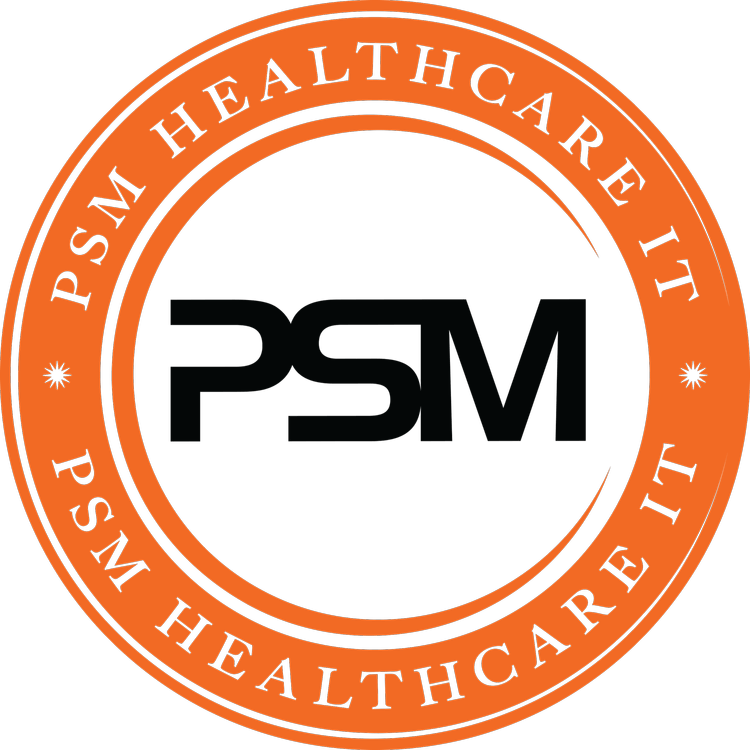Looking to streamline your healthcare IT services without breaking the bank? We’ve got you covered! In this listicle, we’ll unveil the most affordable and top-tier outsourced healthcare IT solutions that can revolutionize your operations. From cutting-edge software to expert support, these providers offer the best bang for your buck in the industry.
Discover how you can enhance efficiency, boost security, and improve patient care with these cost-effective IT solutions tailored for healthcare organizations. Scroll down for reviews of our top picks and take your healthcare IT infrastructure to the next level!
Key Takeaways
-

Affordable Best Outsourced Healthcare IT: 10 Cost-Effective Solutions Implement cloud-based data storage solutions to securely store healthcare information and improve accessibility.
-
Utilize remote IT support services to ensure smooth operations and quick issue resolution in healthcare IT systems.
-
Prioritize cybersecurity solutions to protect sensitive patient data from potential breaches and cyber threats.
-
Integrate electronic health records (EHR) systems for efficient management of patient information and streamlined workflows.
-
Leverage AI-powered healthcare analytics to gain valuable insights, enhance decision-making, and improve patient care outcomes.
-
Consider outsourcing help desk support to a specialized provider for prompt assistance and efficient IT troubleshooting in healthcare settings.
Telemedicine Software
Telemedicine software revolutionizes healthcare delivery by enabling remote consultations and virtual visits, enhancing patient access to medical services. This innovative technology facilitates seamless communication between healthcare providers and patients through integrated messaging features, ensuring efficient and effective care delivery.
Key Features:
-
Improved Patient Access: Enables patients to receive medical care from the comfort of their homes, eliminating barriers to healthcare access.
-
Integrated Messaging: Facilitates real-time communication between healthcare providers and patients, allowing for quick consultations and follow-ups.
Benefits:
-
Enhanced Efficiency: Streamlines appointment scheduling and management, reducing wait times and optimizing healthcare facility operations.
-
Cost-Effective Care: Reduces overhead costs associated with in-person visits, benefiting both patients and healthcare providers.
Statistics:
-
According to a study by the American Medical Association, telemedicine has the potential to reduce the number of emergency room visits by 27%.
-
The global telemedicine market is projected to reach $155 billion by 2027, indicating rapid adoption and growth in the healthcare industry.
Innovative Solutions:
-
Medical Billing Services: Integrates seamless medical billing solutions for streamlined payment processes.
-
Clinical Services: Offers a wide range of clinical services through virtual platforms, expanding access to specialized care.
Cloud-Based Data Storage
Cloud-based data storage offers secure and scalable solutions for storing sensitive patient information, providing accessibility from anywhere. This technology enhances collaboration among healthcare teams by enabling real-time data sharing and updates, leading to improved patient care and streamlined workflows.
One key benefit of cloud-based storage is the reduction in infrastructure costs. By eliminating the need for on-premises servers and maintenance, healthcare organizations can allocate resources more efficiently, focusing on enhancing patient outcomes rather than managing IT infrastructure.
Moreover, cloud storage solutions ensure data redundancy and disaster recovery, safeguarding critical patient information against unforeseen events like system failures or natural disasters. This added layer of protection contributes to maintaining data integrity and continuity of care.
Another advantage is the flexibility offered by cloud-based storage, allowing healthcare providers to scale their storage needs according to demand. Whether it’s a small clinic or a large hospital network, cloud storage adapts to the organization’s requirements, ensuring optimal performance and cost-effectiveness.
Remote IT Support Services
Remote IT support services play a crucial role in ensuring seamless operations within healthcare facilities. Immediate technical assistance is provided to healthcare staff, reducing downtime and disruptions that can impact patient care. By outsourcing IT support, healthcare facilities can focus on patient care without being burdened by technical issues.
These services offer 24/7 support options, guaranteeing continuous operations and swift problem resolution. This round-the-clock availability ensures that any IT issues are addressed promptly, minimizing any potential impact on critical healthcare systems.
By entrusting IT support to experts, healthcare facilities can benefit from specialized knowledge and experience in handling various technical challenges. This allows the staff to concentrate on their primary goal of providing quality care to patients without distractions caused by IT issues.
In addition to resolving immediate technical problems, remote IT support services also contribute to the overall efficiency and productivity of healthcare facilities. With experts managing IT infrastructure and systems, healthcare staff can work more efficiently, leading to improved patient outcomes and satisfaction.
Overall, remote IT support services are essential for maintaining the smooth operation of healthcare facilities by providing timely assistance, expertise, and continuous support to ensure uninterrupted patient care.
Cybersecurity Solutions
In the realm of outsourcing cybersecurity for healthcare IT, implementing advanced security measures is paramount. By utilizing cutting-edge encryption technologies and multi-factor authentication, sensitive patient data can be safeguarded effectively.
One key aspect of cybersecurity solutions is the need to educate healthcare staff on best practices. Conducting regular training sessions to raise awareness about phishing scams, social engineering tactics, and password security can significantly reduce the risk of data breaches.
To stay ahead of cyber threats, it’s crucial to regularly update security protocols. With the rapid advancements in cyber threats targeting healthcare organizations, staying proactive by updating software, conducting vulnerability assessments, and monitoring network traffic is essential to maintain a robust cybersecurity posture.
Electronic Health Records (EHR) Systems
Centralize patient information to enhance coordination among different healthcare providers for uninterrupted healthcare services.
-
Automate administrative tasks to minimize paperwork, streamlining clinical workflows and boosting efficiency in healthcare settings.
-
Ensure compliance with regulations by maintaining accurate and up-to-date patient records, reducing the risk of errors and improving overall patient care.
AI-Powered Healthcare Analytics
AI-Powered Healthcare Analytics revolutionizes the healthcare industry by leveraging advanced technologies to analyze vast amounts of patient data. Through machine learning algorithms, it can predict patient outcomes and tailor treatment plans for optimal results.
-
Identifying Trends: Analyzing large volumes of data helps in spotting patterns and trends that can significantly impact patient care and operational strategies.
-
Improved Decision-Making: By providing real-time insights, healthcare professionals can make informed decisions promptly, leading to enhanced medical billing strategies and overall efficiency.
-
Predictive Capabilities: Machine learning algorithms enable the prediction of potential health issues, allowing proactive measures to be taken for better patient outcomes.
-
Resource Optimization: Insights derived from analytics aid in allocating resources effectively, streamlining operations, and improving operational efficiency.
AI-Powered Healthcare Analytics plays a crucial role in transforming the healthcare landscape by enabling data-driven decision-making and personalized patient care. By harnessing the power of AI and analytics, healthcare providers can enhance their services, optimize resource allocation, and ultimately improve patient outcomes.
Outsourced Help Desk Support
Outsourced Help Desk Support offers specialized technical support customized for the intricate requirements of healthcare settings. By partnering with outsourcing providers, healthcare organizations can benefit from reduced response times for IT-related issues, ensuring minimal disruptions to patient care. This service allows healthcare entities to allocate resources more effectively by offloading non-core functions to external experts.
-
Tailored Technical Support: Provides assistance tailored to the unique needs of healthcare environments, ensuring prompt and efficient resolution of IT issues.
-
Enhanced Efficiency: Outsourcing IT support helps in streamlining operations, freeing up internal resources to focus on core healthcare activities.
-
Cost-Effective Solution: By outsourcing help desk support, healthcare organizations can reduce expenses associated with maintaining an in-house IT team.
Outsourced Help Desk Support is a vital component of successful healthcare IT outsourcing arrangements. It enables healthcare providers to enhance operational efficiency, improve patient care, and optimize resource utilization. By leveraging the expertise of outsourcing companies in managing IT functions, healthcare organizations can navigate complex technological challenges while staying focused on delivering quality patient care.
Compliance Management Tools
Powerful tool for healthcare organizations to streamline compliance processes and ensure adherence to regulations.
-
Automate compliance tracking to monitor and manage adherence to industry standards efficiently.
-
Simplify reporting processes and audits by providing organized documentation and data, facilitating smooth regulatory inspections.
-
Enhance risk management strategies by identifying compliance gaps and implementing corrective actions promptly.
These tools are designed to fit the specific needs of healthcare providers, offering tailored solutions to address complex regulatory requirements effectively.
By utilizing compliance management tools, healthcare institutions can significantly improve efficiency in maintaining regulatory compliance, reducing manual errors, and ensuring a high level of data accuracy.
With the help of these tools, organizations can proactively address compliance issues, mitigate risks, and demonstrate a commitment to maintaining the highest standards of patient care and data security.
Incorporating compliance management tools into healthcare IT systems not only ensures regulatory compliance but also fosters a culture of continuous improvement and accountability within the organization.
Virtual Reality Training Simulations
Virtual Reality (VR) Training Simulations revolutionize healthcare training by offering immersive training experiences for healthcare professionals. These simulations provide a safe environment for practitioners to practice various medical procedures, enhancing their skills and confidence.
With a focus on the future of healthcare training, VR simulations ensure accuracy in replicating real-life scenarios. Healthcare professionals can perform surgeries, patient consultations, and emergency response simulations with precision, improving their overall performance and expertise.
By incorporating advanced technology, VR simulations enable interactive learning experiences that boost knowledge retention. Through engaging scenarios and hands-on practice, healthcare professionals can grasp complex concepts more effectively, leading to enhanced skill development and competency.
Moreover, VR simulations facilitate team-based training scenarios, promoting collaboration and communication among staff members. Healthcare teams can work together in simulated environments, fostering better teamwork, coordination, and decision-making skills.
Blockchain for Data Security
Blockchain technology is revolutionizing the healthcare industry by ensuring secure and tamper-proof records of patient information and transactions. By leveraging blockchain, healthcare organizations can enhance data integrity and trustworthiness through a transparent audit trail for all interactions. This technology offers a robust solution to protect patient privacy by enabling secure sharing of information across different healthcare entities.
-
Tamper-Proof Records: Blockchain creates a decentralized system where each block of data is linked in a chain, making it nearly impossible to alter past records without detection.
-
Transparent Audit Trail: Every transaction recorded on the blockchain is time-stamped and encrypted, providing a clear and transparent history of all data exchanges, ensuring accountability and traceability.
-
Secure Information Sharing: Blockchain enables secure sharing of patient information among healthcare providers, insurers, and other authorized parties while maintaining confidentiality and data integrity.
Closing Thoughts
In today’s fast-paced healthcare landscape, leveraging outsourced IT solutions can revolutionize how you deliver care. From telemedicine software to AI-powered analytics, these tools streamline processes, enhance data security, and improve patient outcomes. By embracing cloud-based storage and remote IT support, you can focus on what truly matters – providing quality care while experts handle the tech side. With cybersecurity solutions and compliance management tools, your practice stays protected and compliant, ensuring trust and reliability.
Harness the power of outsourced healthcare IT to propel your practice forward. Embrace innovation, enhance efficiency, and prioritize patient care. Stay ahead in this digital era by integrating these cutting-edge solutions into your workflow. Your patients deserve the best – give it to them with top-notch outsourced IT support!
Frequently Asked Questions
What are the benefits of using Telemedicine Software?
Telemedicine software allows for remote consultations, reducing costs and increasing accessibility to healthcare. It improves patient care by enabling virtual visits and monitoring, enhancing overall efficiency and convenience.
How does Cloud-Based Data Storage benefit healthcare IT outsourcing?
Cloud-based data storage ensures secure access to patient information from anywhere, facilitating efficient collaboration among healthcare professionals. It enhances data security, scalability, and cost-effectiveness compared to traditional on-premises solutions.
Why are Cybersecurity Solutions crucial for successful outsourcing of healthcare IT services?
Cybersecurity solutions protect sensitive patient data from cyber threats, ensuring compliance with regulations like HIPAA. By safeguarding against breaches and unauthorized access, it maintains trust in the healthcare system and minimizes the risk of costly data breaches.
What role does AI-Powered Healthcare Analytics play in outsourced healthcare IT?
AI-powered healthcare analytics analyze vast amounts of data to improve decision-making, enhance patient outcomes, and optimize operational efficiency. It enables predictive analytics, personalized medicine, and proactive healthcare management for better patient care.
How can Outsourced Help Desk Support benefit healthcare organizations?
Outsourced help desk support provides round-the-clock assistance for IT issues, ensuring minimal downtime and quick problem resolution. It offers cost-effective solutions, expertise in troubleshooting, and efficient support to streamline healthcare IT operations.





